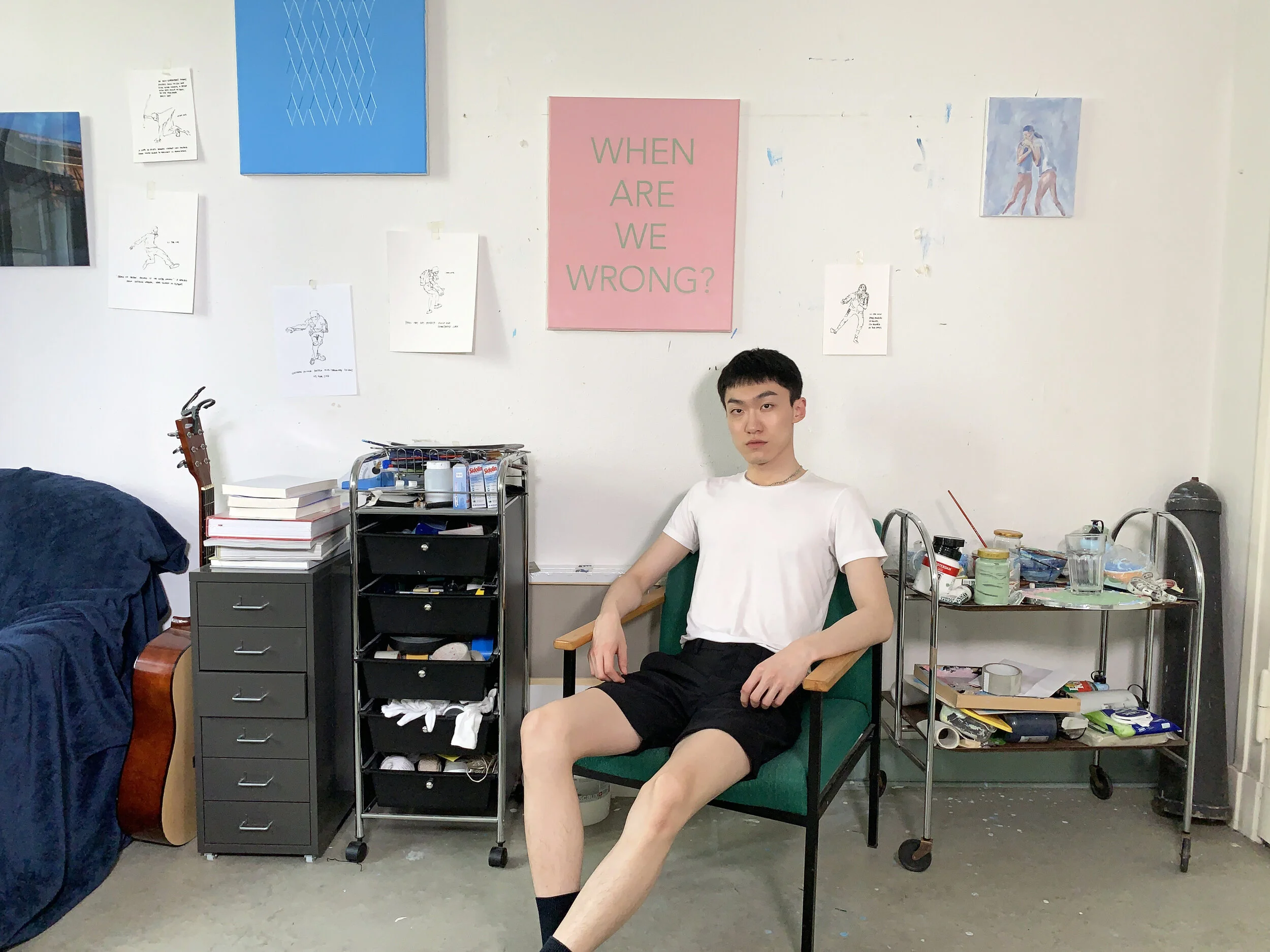gallerytalk: Interview mit Isaac Chong Wai
Interview with Isaac Chong Wai
Transnational Histories & Political gestures
This is the shortened English version. For the full interview in German, head to gallerytalk.net.
Isaac Chong Wai is one of those artists who you can talk to for hours – you never run out of current things to chat about. His works always seem extremely topical, be it his performances of Police Exercises, or his photography that deal with racist behaviour in Germany. The Berlin-based artist has a nose for systemic, underlying issues in (German) society. When I visited him in the studio, we talked about his new projects, his interest in German history and the way he deals with the current media coverage every day.
Isaac Chong Wai: „Hong Kong and Hong Kong“, 2017, crystal resin, flag, paper, sound track, 19.9 x 26.4 x 8 cm, 2’49“, unique, Collected by Burger Collection.
Every time we meet up, I have a list of current issues that reminded me of your works. How do you see the relation between your practice and current events?
The things I have been dealing with in my work have always existed, just not at the top of everyone’s mind. And just now, issues such as institutional racism and systemic violence, are brought to the forefront of the conversation. In a time of crisis such as ours, marginalized people suffer more, from unemployment or the lack of health care. The same goes for police brutality, a problem has been part of our system for a long time, and not just in the US. On top of that, we have this perception of reality connected to the news – how the media create a reality, through which we see the world right now. It captures the suffering and violence, which repeats itself, again and again.
What role do your works play in a tumultuous, crisis-ridden time like this?
That is the interesting part about contemporary art. Even works from, let’s say, 40 years ago, are still very contemporary. Certain issues we don’t want to be talking about, and that is exactly what we are seeing now: people take to the streets, again and again, voicing these inconvenient truths. But I wouldn’t say that this adds more layers to my works, they can just be read differently each time. Some compare it to a kind of prophecy. In general, I think that artists are simply more sensitive to abstract issues. These days, the idea of an “enemy” needs to be very precise, best recreated in human form, and labeled “the other.” Artists, on the contrary, have different ways and tools to deal with these complex problems and concepts in their practice.
I Dated a Guy in Buchenwald, 2013, Buchenwald, Weimar, Germany, Text on paper, wooden frame, caption, Framed size: 30.2 x 26.2 x 2.7cm
Coming from Hong Kong, discussions of a nation-state, and patriotism must always hit close to home. Has your upbringing in the Special Administrative Zone made you more sensitive towards the subtleties of national narratives?
I have not thought about it that way, but yes. Hong Kong has an interesting history, between questions of nationhood, the Hong Kong identity, and the back and forth between China and Great Britain. Seeing how Hong Kong identity was formed – based on not being Chinese, but still as part of China – living in Hong Kong has always been an ambiguous state, an in-betweenness. This ambiguity shows in my work – a powerful mindset against our polarized world.
You have been in Germany for a while now, first in Weimar, now in Berlin. What kind of role does Germany play in your artistic practice?
I appreciate very much how Germany has dealt with the “Aufarbeitung” of memory and history. Many other countries still have not faced their historic atrocities and apologized in this way. I do think it is important for artists to really understand and be conscious of their spatial and cultural context. Especially in the beginning, I was very eager to explore history here in Germany, and different ideas such as compassion and solidarity became part of my practice. Especially in current times, we need to look for common ground beyond national history, look for transnational memory instead of exclusively national narratives – even if that sounds quite idealistic.
Find the whole interview in German here.
Isaac is part of the show “Recurrence” at Zilberman Gallery in Berlin starting on June 26 until August 29, 2020. Find his work on his website.


